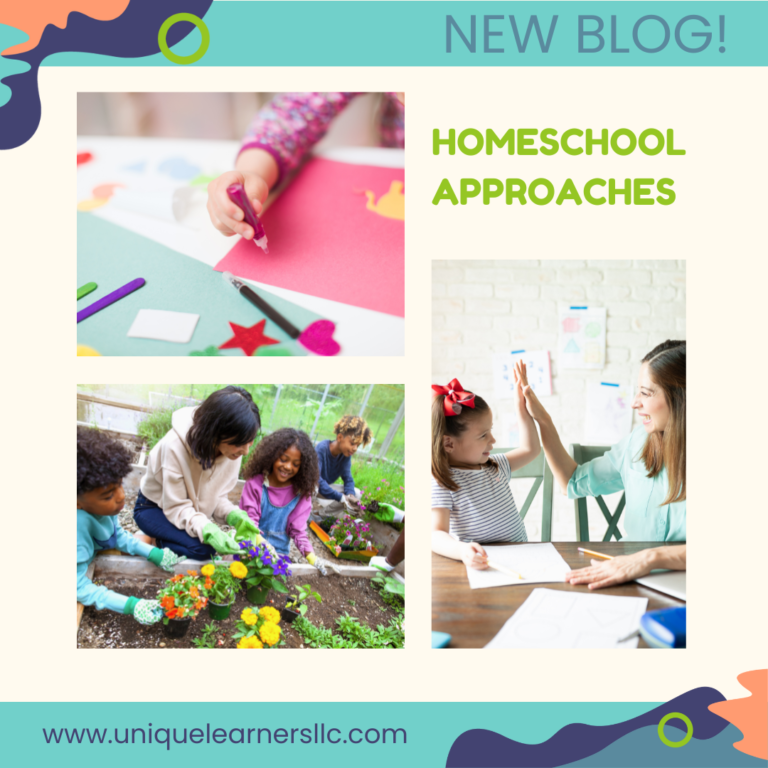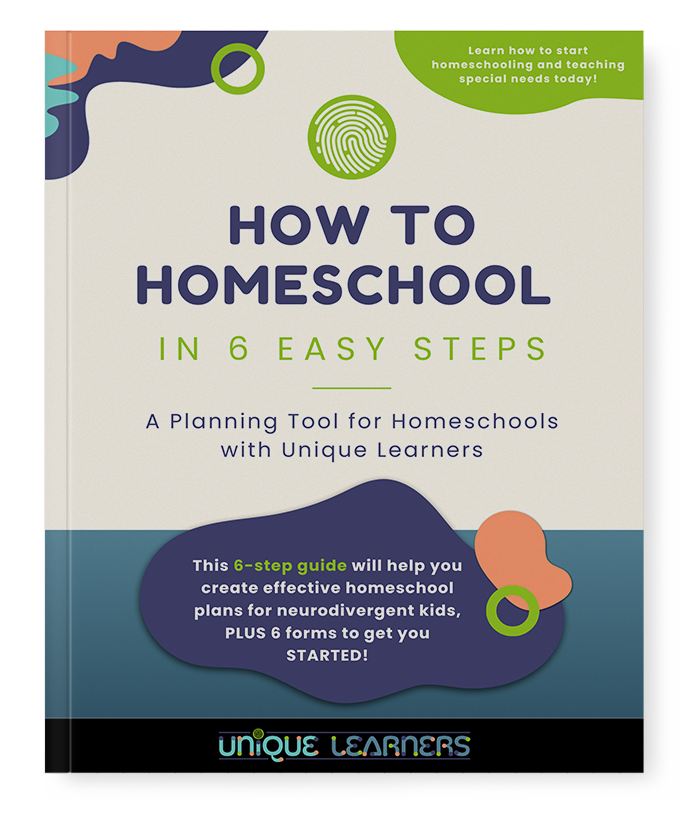New homeschool parents have a variety of educational approaches to choose from, each with differing philosophies, methods, and goals. The same is true for families where a child with special learning needs is included; however, many times their approach automatically falls into the Eclectic homeschool approach simply because kids with special learning needs often require accommodations or tailoring instruction to multisensory practice. Modified curriculum is available. Thus, I add a separate category for a Special Needs homeschool approach because teaching for a child’s learning profile can be different than a philosophically-driven Eclectic approach. Here are some of the most common special needs homeschool approaches:
11 Common Special Needs Homeschool Approaches:
Traditional or School-at-Home
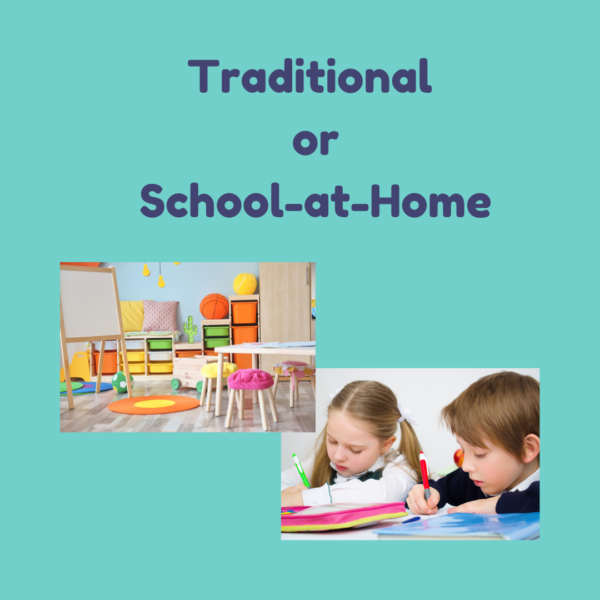
This approach closely mirrors the experience of a traditional public or private school. It often includes:
- Structured curricula with textbooks and workbooks
- A set schedule similar to a school day
- Use of tests and assessments for progress tracking
Classical
A classical education is rooted in the trivium, a three-part process intended to train the mind:
- Grammar stage: Focus on foundational knowledge and facts
- Dialectic stage: Teach critical thinking and reasoning
- Rhetoric stage: Develop the ability to communicate effectively
Charlotte Mason or Relaxed

Based on the philosophies of Charlotte Mason, this approach emphasizes:
- The use of “living books” (books that make subjects come alive)
- Spending significant time in nature
- An importance placed on narration and copywork
Montessori
The Montessori approach, created by Dr. Maria Montessori, is characterized by:
- A structured learning environment set up for child-led exploration and practice
- Emphasis on hands-on learning
- Emphasis on daily life skills
- Read more about Montessori in my blog post Principles of a Montessori Homeschool
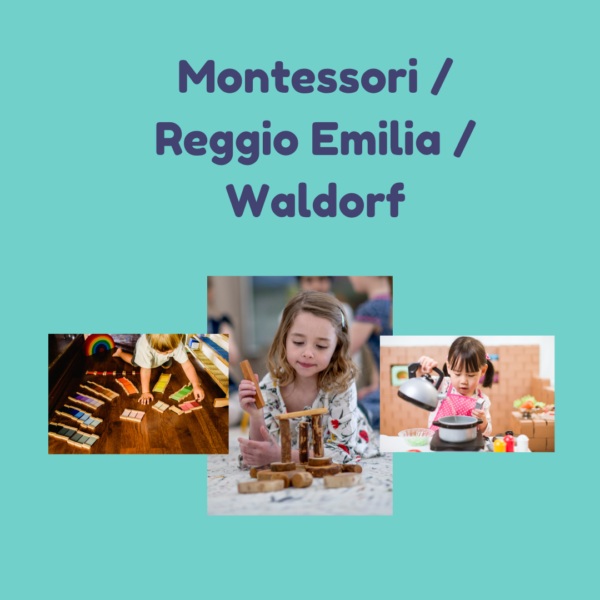
Reggio Emilia
The Reggio Emilia approach focuses on problem solving and the languages children use:
- Emphasizes creative learning and imagination through project provocations
- Child-led interaction with the environment
- Teacher role is to observe and listen to children’s variations of communication
- Read more about Reggio Emilia in my blog post Principles of the Reggio Emilia Approach
Waldorf
Waldorf education focuses on holistic development:
- Emphasizes creative learning and imagination
- Includes rhythmic and repetitive learning to foster retention
- Limited exposure to technology and media in early years
Unschooling
Unschooling is a more informal approach that includes:
- Following the child’s interests and curiosities
- A reliance on real-world experiences for learning
- Little to no use of formal curricula or structured learning
Eclectic
Eclectic homeschooling combines various elements from other methods:
- Parents picking and choosing elements from different educational philosophies
- Tailoring learning to the child’s individual needs and interests
- Often a flexible schedule and curricula
Unit Studies
With unit studies, learning is focused around a specific theme or topic, integrating various subjects:
- Multi-disciplinary approach to a central theme
- Possible to cover multiple age levels with the same topic
- Projects and hands-on activities to bring the topic to life
Technology-based
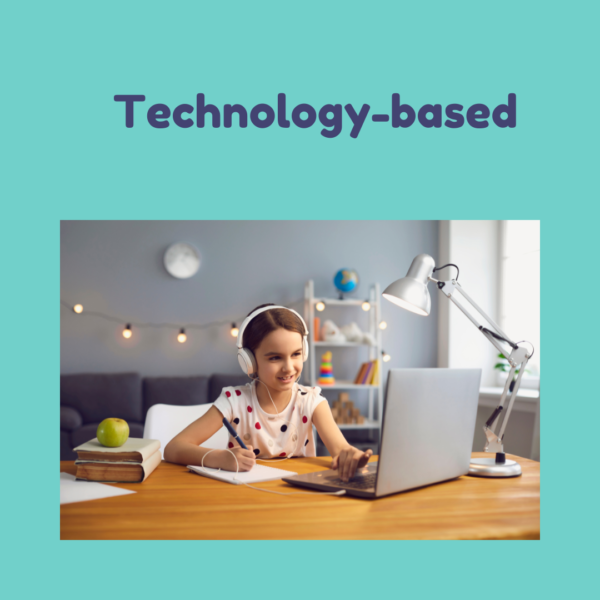
- May involve an online homeschool academy or use of individual app programs
- May include teacher admin services, like grading or transcript services
- Quality varies widely and often does not tailor to kids with special needs
Special Learning Needs

- Based on the unique strengths and weaknesses as revealed from a child’s learning profile
- Primarily goal-driven instruction from goals on an Individual Learning Plan
- Learning activities may use any of the homeschool approaches or a modified curriculum
Choosing the right homeschooling approach is personal and varies from family to family. It is often helpful to combine aspects of multiple approaches to best suit the child’s learning style and the family’s goals, especially when a child has special learning needs. If you want support and help, feel free to join our private Facebook group, Homeschool Help for Special Needs.
